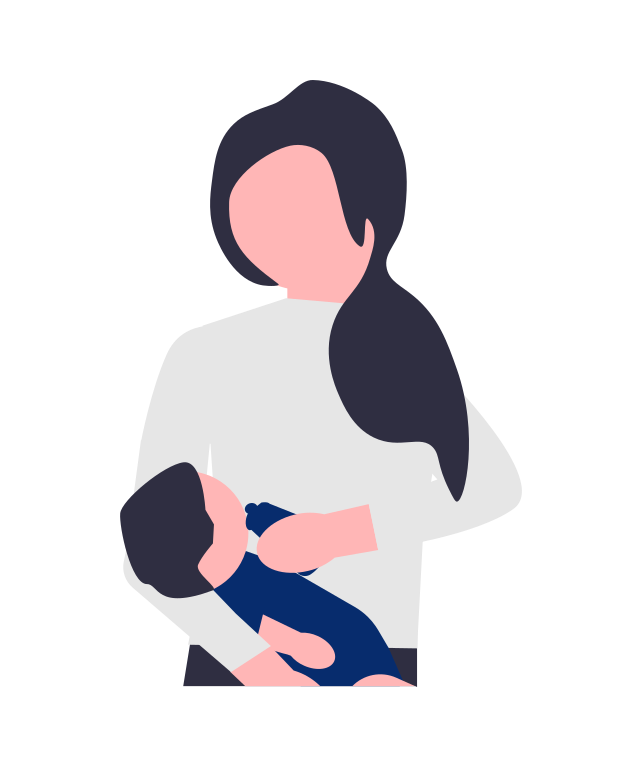Retrospective future thinking as a novel method to imagine the future: remembering autobiographical events from the perspective of the future self
The research described in this article was developed during Ayleen’s Masters thesis in close collaboration with Annette Bohn. In 2022, the article was published in the international peer-reviewed journal Memory.
Below, you will find the scientific abstract which is a summary of the entire article as it was published in the journal. Afterwards, you will find a short description of the article in a language that is easier to understand and a focus on “what does this mean?”.
Scientific Abstract – A summary of the research for the journal
People think retrospectively about past events and prospectively about future events. Here, the novel method of retrospective future thinking is introduced to investigate the characteristics of autobiographical events reported as if they had been already experienced. In total, 166 participants were asked to (1) generate cultural life scripts and (2) to imagine themselves being 100-years old. From this perspective, they reported, dated and rated on valence their seven most important events. Results provide evidence that the cultural life script guides the recall and, more so, the imagination of retrospectively reported autobiographical events. Exploratory analysis of age effects indicated that older participants reported events that were more realistic, less scripted and wider distributed across the life span. This provides the first evidence that retrospective future thinking can alter older adults’ life perspective by expanding their period for experiencing important events beyond the reminiscence bump years.
And what does this mean?
When we think about our lives, we often look backwards to remember what has happened in our past or look forward to imagine what might happen in the future. But what would we remember from our lives if we had already lived through it? What would we consider as most important? To investigate this, we developed a novel method that we named retrospective future thinking. With this method, we investigate what events we would consider as most important to ourselves if we had already lived through our lives.
Using the newly designed retrospective autobiographical event questionnaire, we asked 166 participants (age range 18-78) to imagine that they are 100 years old. From this perspective, we asked the participants to think of the seven most important events they will have experienced in their 100-year-old life. For each of the reported events, participants were asked to write a short title, indicated their age of when the event happened or was expected to happen, and whether it is an event that they had already experienced or whether it is an event they expect to experience in the future.
Let’s take a look at an example of a hypothetical 25-year-old participant named Anna. She reported from the perspective of her 100-year-old self that her most important events were that she…
 |  |  |  |  |  |  |
| Finished highschool | Got married | Became a mom | Got a dog | Travelled the world | Created art | Became grandparent |
In the example of the 25-year-old Anna, she indicated that she has finished high school at age 18 (past event) and is expecting to get a dog at age 35 (future event).
While the task above asked for personal events, the next task was not related to a participant’s personal experience but to a cultural expectation. In the so-called Cultural Life Script Task, participants were asked to report the seven events that they thought are most typical to happen in a life of a prototypical person of their own culture. For each of these events, participants reported a short title, the age at which they think the event is most likely to happen in an ordinary life course and the emotions. Lastly, participants indicated their current well-being and satisfaction with life.
What would we remember from our lives, when we take a perspective as if we had already lived through it?
We found that participants reflecting on their personal lives from their 100-year-old self reported mostly positive events that they expected to have experienced between age 15 and 30. These personal events and their expected timing were very similar to the events that a prototypical person was expected to experience in a lifetime. It suggests that when we select the events that are most important to our 100-year-old self, we use the knowledge about which events are typical to be experienced in our culture. However, we found important differences between a person’s life story events and the events expected to happen in an ordinary life course: In their personal life story, participants included more negative events overall and included fewer of their positive events to happen between the age of 15 and 30 but dated these to happen more widely across their life of a 100-year old.
To explore why these differences appeared, we had a closer look at the age of the participants and split the data into a young and an old group. Both age groups strongly agreed on which events they would consider as most important from their 100-year-old self. However, the young group included more culturally typical events, more positive and fewer negative events, and expected most events to happen between age 15 and 30. These findings suggest that our cultural knowlegde of what is expected to happen in life is less relevant for older adults who reported more realistic events that were wider distributed over the lifespan of 100 years.
Remembered from the perspective of the 100-year-old self, events yet to happen from the present moment in 2022 were more culturally typical than events that have been already experienced. This finding suggests that thinking about the future compared to the past is more demanding as we rely more on schematized knowledge to do so.
Lastly, individuals who indicated higher levels of well-being and/ or were more satisfied with their life remembered more positive events as part of their 100-year-old life. However, aspects of mental health were not related to one’s sense of remaining time (how many past or future events reported) or how culturally typical one’s life events were.
Conclusion
The findings suggest that even when we reflect on our life from the perspective of our 100-year-old self, the events we consider as most important are similar to what our culture expects us to experience in a life course. However, this influence of cultural knowledge seems to be more relevent when we think of events expected to happen in the future and diminishes when we get older. Retrospective future thinking seems to break the spell of the cultural life script for older adults, leading to more individual and realistic life story events that are less influenced by cultural expectations.
Do you want to read the full article?
The full article can be found here.
If you want to cite the published article, please use this format:
Roderer, A. & Bohn, A. (2022): Retrospective future thinking as a novel method to imagine the future: remembering autobiographical events from the perspective of the future self. Memory, 31(1), 22-33. DOI: 10.1080/09658211.2022.2120997
This article has been also discussed in the Memory & Emotion Lab at Kadir Has University, see here.